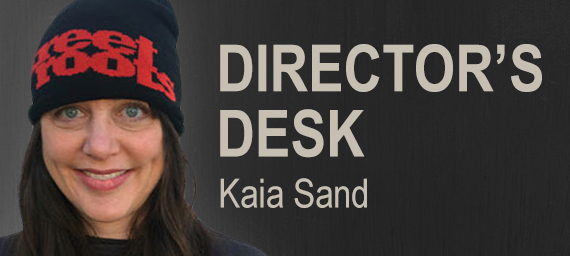What if people had a right to housing in the way that they have a right to a K-12 public education?
That’s a question Andy Nelson, executive director of Impact NW, posed to me. Impact NW provides services with the aim of preventing homelessness — rent and utility assistance, job coaching, after-school care – and Nelson wants to think about how homelessness prevention could be baked into the system through guaranteed housing.
“By and large, in our community, in the United States, if you want to send your child to school, you can find a public school. You can also go private if you want.”
If a family moves to a neighborhood, they can sign their child up for a spot in the local school.
“But for housing, it’s not like that,” he continues. “It’s kind of like if there were two public schools in the city of Portland and all the rest were private.”
Curious about how we can form a more ambitious local social imagination around housing, I decided to explore this question: Do you think people have a right to housing, and if so, what could that look like?
I’ll be dedicating some of my columns to this topic going forward. I’m curious how we can hold a collective vision of housing for all, like a snow globe of the near future.
I’m asking “what does it look like,” because I’m interested in how to shape a practical and local vision.
Given severe inequality, the humanitarian crisis on the streets and the thousands of people who are living on the edge of eviction – how do we make housing for all a reality in our region?
There are good policies that many people are working on and services that organizations are providing. Others are chipping in through mutual aid. Voters have supported services and funding for public investments in housing. Bit by bit, people are taking action. How does this add up to housing for all and what more can be done?
Right now, the availability of housing is mostly tilted away from people with lower incomes.
“You can have your amazing place on the edge of town, but what about everyone else?” Nelson asked. “There’s only a limited amount of housing stock, and it is overwhelmingly privately owned.”
Just as public health is a collective responsibility – getting vaccinated and wearing masks is about taking care of each other through the air we breathe, which is our commons – so could be housing. As it is, our region has a severe uneven distribution of housing, tilted – very tilted – toward those with means.
Because “there’s just too much of our real estate in private hands,” Nelson argues that “somehow we got to get some of that housing into the commons.”
Nelson has shaped his notion of the commons based on the actual conditions of housing right now. What is relatively more affordable to more people? Since it’s not the private housing market, he has shaped his notion of the commons around housing that is “public, or whether it’s organizations like Human Solutions or the PDX Urban League owning and operating housing. That makes sense to me, because now we’re starting to equalize the playing field.”
While vouchers and rental assistance can subsidize people to live in market-rate housing, he’s interested in how we can increase the housing that’s set up with a containment on how expensive it is in the first place. Public and nonprofit housing.
But what more can be done? One idea, Nelson proposes, is looking at office buildings emptied out during the pandemic.
“The future of work has gotten accelerated in the pandemic,” Nelson said. “We were heading there anyway. And now we’re here. There’s really a lot of vacant office space. You know, and I don’t know if anyone’s ever going to go back in there.”
These buildings already have plumbing and electrical systems, he points out, and now they have to be retrofitted. He also muses about the potential of big empty spaces like the now-vacant Lloyd Center Mall.
“These places are already built. They’re already there.”
What is before us is a decision: do all people have a right to housing, or is it okay that thousands of people are priced out? I don’t want to settle for the dystopian despair of widespread homelessness and poverty, and I know that many of you don’t want to either. In the coming months, I’ll keep gathering people’s ideas in this column, practical notions around a right to housing that include what we are already doing, and what we have yet to try.


